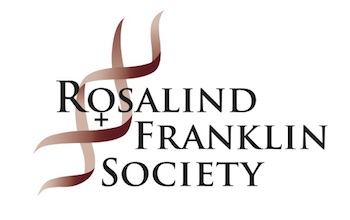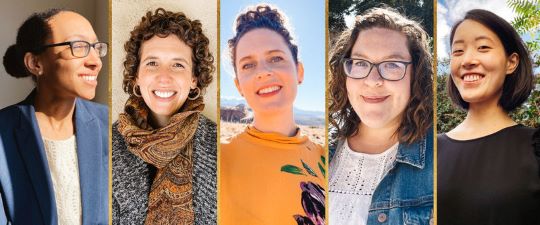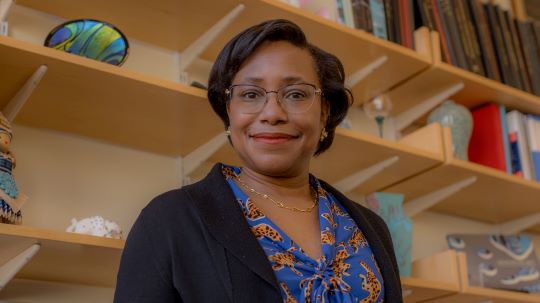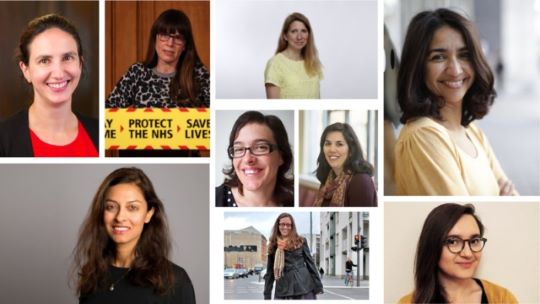|
Dear Colleagues, I am pleased to include another issue of RFS Briefings with some timely and encouraging updates on women in science. The perseverance of women in science has been on full display this past year: they have made seminal scientific discoveries, taken up new leadership positions, started companies, and led the charge in the fight against COVID-19.
The Rosalind Franklin Society, celebrates these accomplishments, and many more, by recognizing, fostering, and advancing critical contributions from women in the life sciences and affiliated disciplines in the annual virtual conference Labs, Leaders, Critical Connections. From groundbreaking research to prestigious awards and recognition, this free virtual event provides you with incredible access to emerging stars as well as those who continue to lead the way.
This free event will take place online over three half-days: January 25th, 26th and 27th, 2022 from 2:00pm to 5:00pm ET.
Please continue to share important news and opportunities with us so that we may share it with you, and others who are committed to supporting the careers of exceptional women in science.
Stay safe and sound,
Karla Shepard Rubinger
Calling all postdoc women in science! Applications for the 2022 L'Oréal USA For Women in Science fellows are now open.
The L’Oréal USA For Women in Science fellowship program awards five women postdoctoral scientists annually with grants of $60,000 each for their contributions in Science, Technology, Engineering and Math (STEM) fields and commitment to serving as role models for younger generations. Read more. Image: The 2021 L'Oréal USA For Women in Science Fellows. Elizabeth Holmes verdict: researchers share lessons for science. Board diversity increased in 2021. Some ask what took so long.
Paula T. Hammond, who heads the chemical engineering department at MIT, was first sounded out about joining the board of a public company in 2020. Photo by Lauren O’Neil for The New York Times. Under pressure to achieve more diversity in senior ranks — from advocates for social change and, at times, their own employees — companies appear to be discovering that a big talent pool of nonwhite people and women for board seats does, in fact, exist. Paula T. Hammond’s work makes her a natural pick to sit on the board of a pharmaceutical or biotechnology company. Yet it was only in 2020 that Dr. Hammond became a director of a publicly traded company. Read more. An evangelical climate scientist wonders what went wrong. Opinion: I helped develop COVID-19 vaccine, let's reach unvaccinated by listening not shaming. 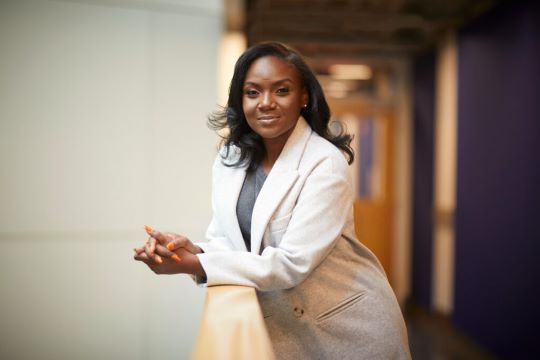 Kizzmekia S. Corbett is an assistant professor of immunology and infectious diseases at the Harvard T.H. Chan School of Public Health and led the team at the National Institutes of Health that designed and developed an mRNA COVID-19 vaccine in collaboration with Moderna. “I don’t go around aggressively proselytizing for vaccines; that would just alienate people. If I did, even some people in my family would have been alienated by now,” wrote Dr. Corbett in an article for USA Today. Read more. Photo by Kent Dayton for Harvard Public Health.
Chemistry textbooks still portray men as scientists while women perform domestic duties.
School chemistry books overwhelmingly focus on men, and when women are included they are often portrayed doing domestic activities rather than science, an analysis from the UK and Ireland has found. Read more. The University of Washington computer science school denounces retired professor’s tweet on women hires.
The University of Washington’s Paul G. Allen School of Computer Science repudiated a tweet by one of its emeritus faculty members who claimed that “half of the female STEM faculty in the U.S. were hired over more qualified men.” Read more. The female ‘data lads’ crunching Covid numbers and keeping us informed throughout the pandemic.
Men have indeed been doing crucial Covid number-crunching, but because the pandemic did start a long time ago but not as far back as the Dark Ages, swathes of women have been doing it too, writes Kasia Delgado. Read more. Stanford research reveals a hidden obstacle for women in academia. Women in science textbooks. Marianna Limas, Social Media Manager |
